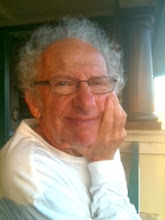My electric bill is at the bottom so you wont have to go back and forth.
A Watt (named after James Watt, steam engine pioneer) measures power. Think of a 100 Watt light bulb. Think of 10 100 watt light bulbs burning at the same time in my condo. Those 10 bulbs are together using 1000 watts and someplace, a machine must be producing 1000 watts of power to supply them. The light bulbs turn 1000 Watts of power into heat and light; 1000 Watts is called a kilowatt, or kW. If I leave the bulbs on for an hour, I use a kilowatt-hour, or kWh. A kWh is the commercial unit of energy. We pay for energy, usually 1 kWh costs some cents, 2 cents to 10 cents depending on where you are in the USA.
I takes roughly one kilowatt to run a residence, more for a large air-conditioned place and less for a small apartment. My bill tells me I used 17.0 kWh on a typical 24-hour day during the 31 days covered by the bill. My power needs were less than a kilowatt, 7/10 in fact. My residence is a 1500 square foot condominium apartment. During the same period last year, I used 19.8 kWh on a typical 24-hour day. I probably saved energy by installing more compact fluorescent bulbs. I use hardly any incandescent or halogen bulbs any more.
Next post: what are all those different charges? Here is the bill again:
Residential Service 31 Days
Basic Service Charge $6.00
Energy Charge Summer 169.68 kWh @$0.067550 $11.46
Energy Charge Winter 356.32 kWh @$0.058070 $20.69
Environmt Imprvment Rider 526 kWh @$0.002100 $1.10
Fuel Cost Charge 526.00kWh @$0.0207898 $10.94
Resource Adjustment $1.11
Subtotal $51.30
State Tax @6.50% $3.33
Total Amount $54.63
Monday, October 29, 2007
Subscribe to:
Post Comments (Atom)

No comments:
Post a Comment